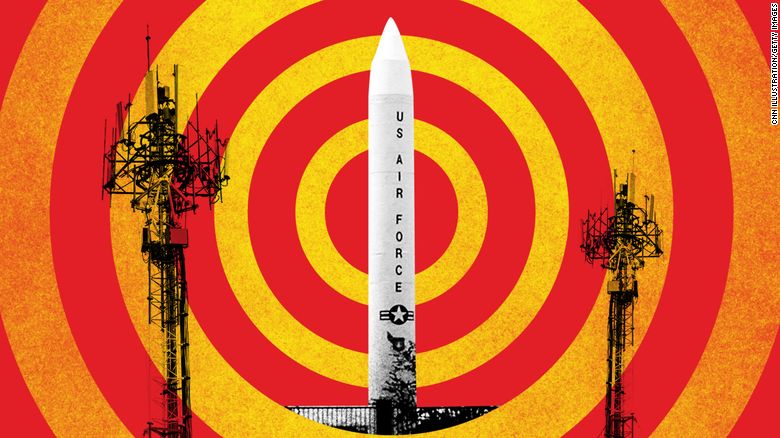CNN Exclusive: FBI investigation determined Chinese-made Huawei equipment could disrupt US nuclear arsenal communications

But when US counterintelligence officials began digging into the details, they found numerous red flags. The pagoda, they noted, would have been strategically placed on one of the highest points in Washington DC, just two miles from the US Capitol, a perfect spot for signals intelligence collection, multiple sources familiar with the episode told CNN. Also alarming was that Chinese officials wanted to build the pagoda with materials shipped to the US in diplomatic pouches, which US Customs officials are barred from examining, the sources said. Federal officials quietly killed the project before construction was underway. The canceled garden is part of a frenzy of counterintelligence activity by the FBI and other federal agencies focused on what career US security officials say has been a dramatic escalation of Chinese espionage on US soil over the past decade. Since at least 2017, federal officials have investigated Chinese land purchases near critical infrastructure, shut down a high-profile regional consulate believed by the US government to be a hotbed of Chinese spies and stonewalled what they saw as clear efforts to plant listening devices near sensitive military and government facilities. Among the most alarming things the FBI uncovered pertains to Chinese-made Huawei equipment atop cell towers near US military bases in the rural Midwest. According to multiple sources familiar with the matter, the FBI determined the equipment was capable of capturing and disrupting highly restricted Defense Department communications, including those used by US Strategic Command, which oversees the country’s nuclear weapons. While broad concerns about Huawei equipment near US military installations have been well known, the existence of this investigation and its findings have never been reported. Its origins stretch back to at least the Obama administration. It was described to CNN by more than a dozen sources, including current and former national security officials, all of whom spoke on condition of anonymity because they were not authorized to speak publicly. Bill Evanina, who until early last year ran the National Counterintelligence and Security Center, told CNN that it can sometimes be hard to differentiate between a legitimate business opportunity and espionage — in part because both might be happening at the same time. “What we’ve seen is legitimate companies that are three times removed from Beijing buy [a given] facility for obvious logical reasons, unaware of what the [Chinese] intelligence apparatus wants in that parcel [of land],” Evanina said. “What we’ve seen recently — it’s been what’s underneath the land.” “The hard part is, that’s legitimate business, and what city or town is not going to want to take that money for that land when it’s just sitting there doing nothing?” he added. A complicated problem After the results of the I-25 investigation were briefed to the Trump White House in 2019, the FCC ordered that telecom companies who receive federal subsidies to provide cell service to remote areas — companies like Viaero — must “rip and replace” their Huawei and ZTE equipment. The FCC has since said that the cost could be more than double the $1.9 billion appropriated in 2020 and absent an additional appropriation from Congress, the agency is only planning to reimburse companies for a fraction of their costs. Given the staggering strategic risk, Lenkart said, “rip and replace is a very blunt and inefficient remediation.” DiRico, the CEO of Viaero, said the cost of “rip and replace” is astronomical and that he doesn’t expect the reimbursement money to be enough to pay for the change. According to the FCC, Viaero is expected to receive less than half of the funding it is actually due. Still, he expects to start removing the equipment within the next year. “It’s difficult and it’s a lot of money,” DiRico said. Some former counterintelligence officials expressed frustration that the US government isn’t providing more granular detail about what it knows to companies — or to cities and states considering a Chinese investment proposal. They believe that not only would that kind of detail help private industry and state and local governments understand the seriousness of the threat as they see it, but also help combat the criticism that the US government is targeting Chinese companies and people, rather than Chinese state-run espionage. “This government has to do a better job of letting everyone know this is a Communist Party issue, it’s not a Chinese people issue,” Evanina said. “And I’ll be the first to say that the government has to do better with respect to understanding the Communist Party’s intentions are not the same intentions of the Chinese people.” A current FBI official said the bureau is giving more defensive briefings to US businesses, academic institutions and state and local governments that include far more detail than in the past, but officials are still fighting an uphill battle. “Sometimes I feel like we’re a lifeguard going out to a drowning person, and they don’t want our help,” said the current FBI official. But, this person said, “I think sometimes we [the FBI] say ‘China threat,’ and we take for granted what all that means in our head. And it means something else to the people that we’re delivering it to.” “I think we just need to be more careful about how we speak about it and educate folks on why we’re doing what we’re doing.” In the meantime, the “rip and replace” program has remained fiercely controversial. “It’s not going to be easy,” DiRico said. “I’m going to be up nights worrying about it, but we’ll do what we’re told to do.” CNN’s Sean Lyngaas contributed to this report.






